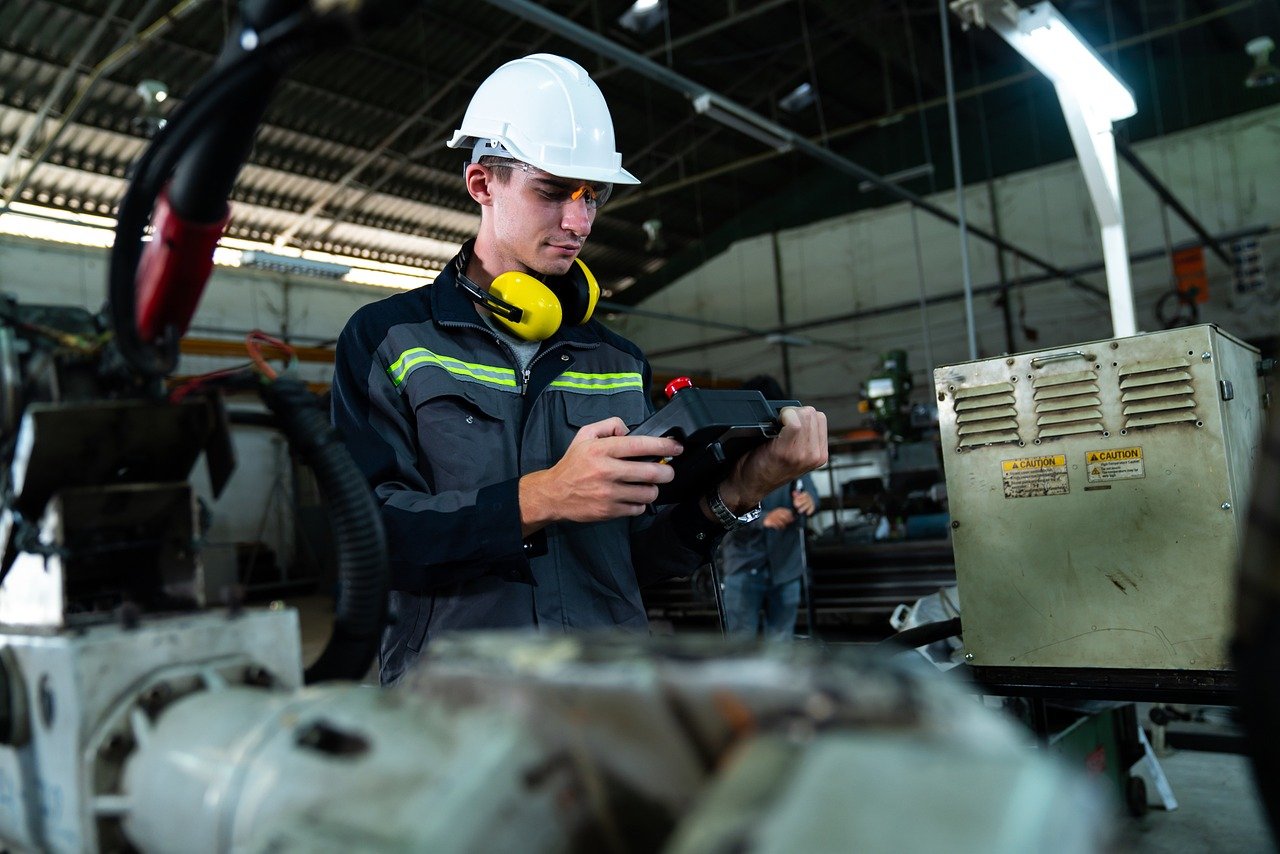Embracing Innovation: The Key to Successful RPA Implementation
June 18, 2024

Imagine a world where your most tedious tasks are handled by digital coworkers, freeing you to focus on the creative and strategic aspects of your business. Robotic Process Automation (RPA) has emerged as a transformative tool to help achieve these goals. However, the key to successful RPA implementation lies in embracing innovation. This article explores the importance of an innovation strategy for implementing Robotic Process Automation (RPA), addressing common challenges and misconceptions, and concludes with how Escalate Group helps companies navigate this journey to unlock digital value and drive exponential growth.
Understanding the Common and Critical Challenges in RPA Implementation
Before delving into the innovation strategy, it’s essential to understand the common and critical challenges businesses face when adopting RPA:
1. Employee Resistance to RPA: Many employees fear automation will replace their jobs, leading to resistance and disengagement.
2. Misconception of RPA as Solely for Cost-Cutting: Viewing RPA only as a cost-saving tool can limit its broader benefits, such as improved accuracy, speed, and customer satisfaction.
3. Waiting for AI to Replace RPA: The belief that RPA will soon be outdated can delay its adoption and prevent organizations from reaping immediate benefits.
4. Fragmented Integration with IT Systems: Viewing RPA as a temporary fix rather than a strategic tool can hinder its effective integration with existing IT systems.
Innovation Strategy for RPA Implementation
To address these challenges, companies need a comprehensive innovation strategy that focuses on continuous improvement, strategic technology adoption, and employee engagement.
Employee Empowerment and Upskilling
Empowering employees through training and upskilling initiatives is vital. This approach helps employees understand that RPA is not a threat but an opportunity to offload mundane tasks and focus on more strategic, fulfilling work. Highlighting success stories and the positive impact of RPA on job roles can alleviate fears and build trust.
Holistic Process Improvement
RPA should be seen as more than a cost-cutting tool. Companies should adopt holistic process improvement methodologies, such as Lean and Six Sigma, to uncover opportunities for RPA to enhance accuracy, speed, and customer satisfaction. This perspective allows businesses to leverage RPA for broader organizational benefits and digital transformation.
Agile Implementation and Strategic Road-mapping
Agile methodologies enable rapid development and iteration of RPA solutions, addressing immediate needs while planning for long-term integration. Developing a technology roadmap that includes both RPA and AI ensures these technologies are viewed as complementary, preparing the organization for future AI adoption. Explore CIO’s Strategies for Integrating AI and RPA for a comprehensive guide on intelligent automation.
Hybrid Integration Strategy
A hybrid integration strategy combines the strengths of RPA and APIs to maximize interoperability and efficiency. This approach ensures seamless interaction between legacy and modern systems, optimizing data flow and process efficiency. Innovators should develop frameworks and guidelines to determine the best use cases for RPA versus APIs.
Change Management and Communication
Effective change management practices are crucial for gaining employee buy-in. Transparent communication strategies, involving employees in the automation journey, and highlighting the benefits of RPA to their daily tasks can foster a positive attitude towards automation. Workshops, town halls, and feedback sessions can enhance employee engagement and drive a culture of innovation.
How Escalate Group Can Help
Implementing RPA is more than a technical upgrade; it is a strategic evolution. Escalate Group guides companies through this transformative process by focusing on growth, innovation, and long-term success.
Comprehensive Training Programs
Escalate Group offers immersive training programs that go beyond teaching how to use RPA. These sessions help employees envision a future where automation frees them to focus on creative, strategic work. Imagine a workplace where every team member is excited about the automation possibilities.
Process Optimization Consulting
Escalate Group’s process optimization consulting leverages advanced analytics and AI algorithms to pinpoint areas for improvement and streamline processes. They employ rapid experimentation and prototyping to quickly test and refine solutions. By fostering a culture of continuous learning and adaptation, Escalate Group ensures your organization stays agile, competitive, and constantly evolving.
Agile Development and Implementation
Leveraging agile methodologies like Scrum. Escalate Group ensures rapid development and deployment of RPA solutions. This approach allows for continuous iteration and improvement, making your automation projects as dynamic as your business needs. Picture your automation evolving as quickly as your business does.
Strategic Road-mapping and Integration
Escalate Group helps you develop a strategic roadmap that integrates RPA with AI and other advanced technologies. This ensures your automation efforts are part of a cohesive, long-term vision for digital transformation, preparing your business for future advancements seamlessly. Learn more about our ExO Workshop for strategic planning and workshops.
Change Management Support
Through transparent communication, engaging workshops, and interactive town halls, Escalate Group fosters a positive attitude toward RPA. They build a culture that embraces innovation, turning every employee into a champion of change. Discover how our Awake Sessions & Workshops can help.
A Transformative Perspective
Instead of viewing RPA as merely a tool for automation, Escalate Group positions it as a catalyst for cultural and operational change. By focusing on education, strategic thinking, and employee engagement, they make the RPA journey a collaborative and inspiring process.
Implementing RPA with Escalate Group is about reimagining your business. By leveraging agile methodologies and a culture of experimentation and collaboration, they help you stay ahead of market disruptions and drive rapid innovation. Discover how this strategic, innovation-driven approach can position your company for unprecedented growth and success.
Case Study:
Transforming Customer Service Operations in a Financial Services Firm

A mid-sized financial services firm was struggling with high volumes of customer service inquiries that required repetitive, manual processing. This led to long response times, high error rates, and low customer satisfaction. Escalate Group implemented RPA to automate the handling of common customer service requests such as account balance inquiries, loan application status updates, and transaction processing. They used advanced analytics to identify the most frequent and time-consuming tasks and then developed RPA bots to manage them. The result was a 98% reduction in processing errors, a significant decrease in response time from 48 hours (about 2 days) to less than 4 hours, and a 30% improvement in customer satisfaction. Employees could then focus on more complex and value-added tasks, increasing overall productivity.
Conclusión
Implementing RPA successfully requires more than just adopting modern technology; it demands a comprehensive innovation strategy. By addressing common challenges and leveraging strategic practices, companies can unlock the full potential of RPA, driving efficiency, productivity, and growth.
Key Benefits of Partnering with Escalate Group:
Enhanced Efficiency: Automate repetitive tasks to reduce processing times and error rates.
Empowered Workforce: Training programs help employees embrace RPA and focus on strategic work.
Agility and Innovation: Agile methodologies ensure rapid development and continuous improvement.
Strategic Integration: Develop a roadmap that integrates RPA with AI for long-term transformation.
Cultural Transformation: Effective change management fosters a culture of innovation.
Partnering with Escalate Group reimagines your business processes and culture. This strategic, innovation-driven approach not only optimizes operations but also prepares your organization for future advancements. Achieve unprecedented growth and success through a culture of experimentation and collaboration.
Embrace the future of work with RPA and Escalate Group – where innovation meets transformation. Discover how this partnership can drive your business towards a more efficient, productive, and innovative future.

